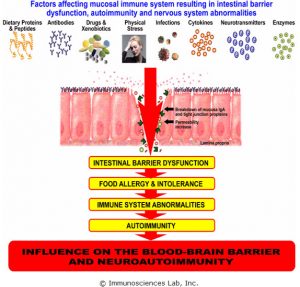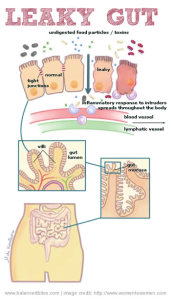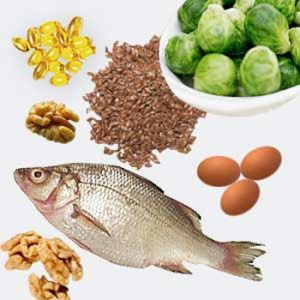This article contains affiliate links. If you make a purchase after clicking on a link I may earn a small commission at no extra cost to you.
Leaky Gut Syndrome Diet Plan
Leaky Gut Syndrome describes a clinical condition where the permeability of the intestine is altered.
It is believed to be responsible for a variety of different clinical conditions such as multiple sclerosis and Celiac Disease. Management of leaky gut primarily involves treating the various conditions that result from it, but dietary plans can also help. In this article, we briefly review leaky gut diet plans and how they could work for you. For more information regarding go to Leaky Gut Syndrome Symptoms.
Foods to avoid
In essence, there does not seem to be a specific diet for leaky gut. Diet plans are based around reducing the symptoms.
For example, patients who develop celiac disease are extremely sensitive to gluten, and consumption of foods that are high in gluten can cause abdominal bloating and even diarrhoea.
Following a gluten free diet is strongly recommended in such patients.
These days, gluten free foods are readily available in supermarkets, and individuals can still enjoy a selection of different foods.
 Leaky gut syndrome can cause intolerance to milk and milk related products.
Leaky gut syndrome can cause intolerance to milk and milk related products.
It appears that these can cause worsening of symptoms. Just avoiding these would be better.
It is also recommended that patients attempt to cut down foods that are high in artificial sweetener content such as diet drinks.
Using table salt can exacerbate symptoms as can the use of soy oil and similar oils.
One of the principles behind diet in leaky gut management is to avoid foods that can cause inflammation of the lining of the gut.
We have already mentioned the damage dairy products can do, and the same holds true with pulses and legumes. Certain kinds of vegetables are notorious at worsening symptoms, including tomatoes, peppers and eggplant.
What to eat

The diet one must follow is to consume foods that are rich in components that can reduce inflammation of the lining of the gut. Primarily increasing the intake of omega-3 fatty acids can be of benefit.
Omega-3 fatty acids are available in good amounts in nuts, fatty fish such as salmon and sardines and certain kinds of oils. These possess anti-inflammatory properties that can reduce leaky gut and relieve symptoms. Some believe that following a vegetarian diet can provide essential nutrients and antioxidants that are important for maintaining a healthy gut.
These days, there is much publicity of probiotics and the benefit that they have on the gut. It appears that patients who have leaky gut will benefit from normalization of the flora within the bowel loops, reducing leakage and the chances of problems arising in the future.
The above foods can also promote healing of the gut, and this can have an overall beneficial effect on leaky gut and its management.
